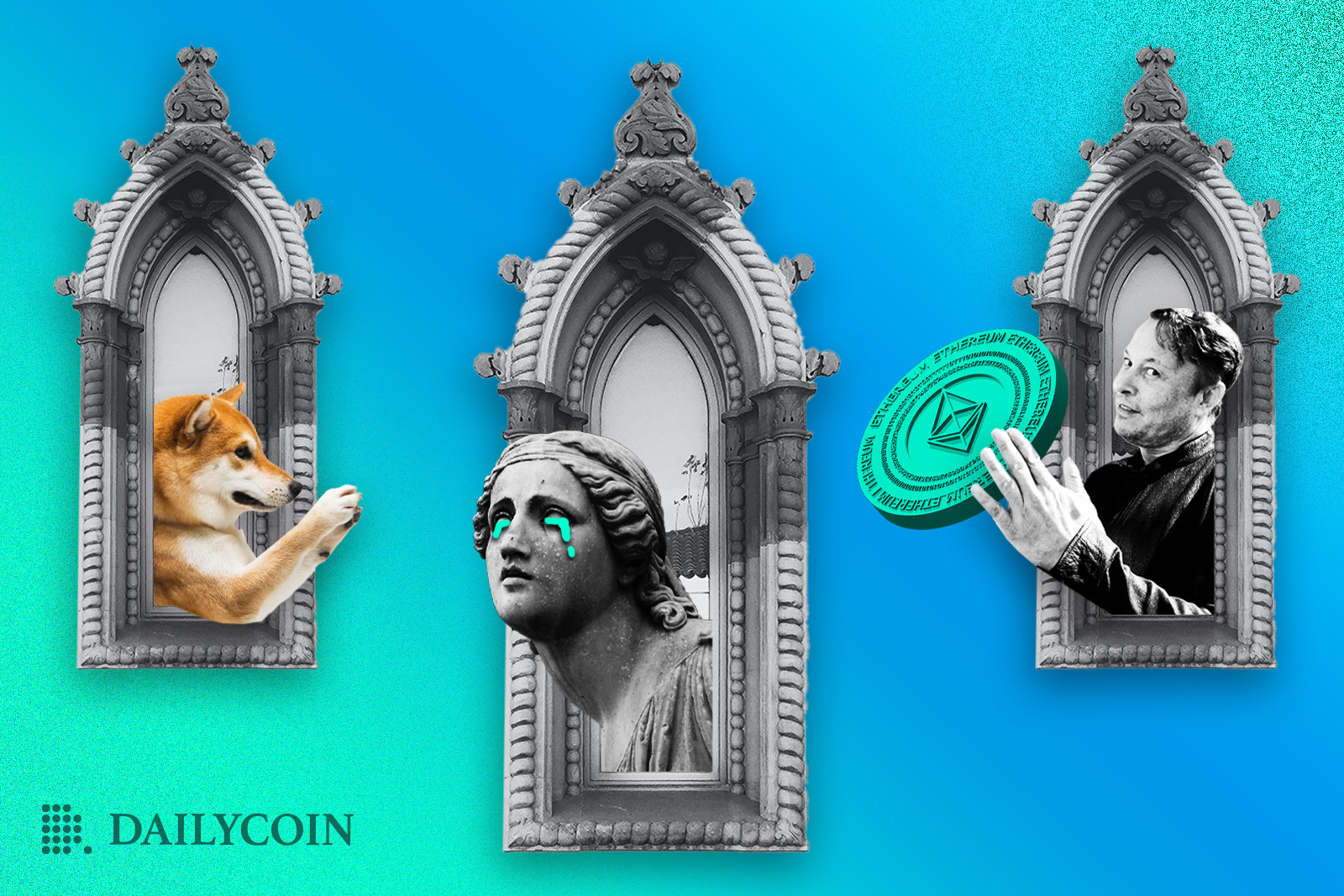
Cryptocurrency is probably the most confusing financial market yet devised. And for good reason too. After all, it is the first attempt in human history to create a decentralized currency that is not just created by decentralized actors, but sustained by them as well.
Much of the confusion in crypto does not stem from crypto itself being particularly confusing. Instead, it stems from the fact that it is a truly novel market in economic history.
Hence a lot of the underlying principles that support the market could be foreign to laypeople. This is one of the reasons that people now believe in a set of insidious myths about the market as a whole.
Sponsored
In this article, we will be looking at five of the most common myths and will be debunking them at the same time.
1. Crypto Is A Fad That Will Soon Go Away
Many people believe that cryptocurrencies are merely a fad that will soon quietly go away. Because of this belief, they don’t pay any attention to crypto and even hold real animosity toward it. One might argue that only the financially unsavvy believe this. But that would be false.
Bigwigs like Warren Buffet have argued that cryptocurrency is just like the Tulip craze in the 17th century. Tulip mania was a period in the 17th century when a certain species of tulip sold for extraordinary prices because of its shape.
Sponsored
It was a speculative bubble that remained intact for about three years before suddenly crashing. Unsurprisingly, tulip mania stopped there and never happened again.
In October of 2018, while Bitcoin was barely recovering from its most significant price drop yet, respected economist Nouriel Roubini argued that Bitcoin was a giant scam.
Coincidentally, statements like this often come during bear markets, which are markets where crypto suffers a significant crunch. Whatever your opinions on cryptocurrency; they are changing the way we think about money, invest money, and spend money. And they are mostly doing it for the better. The most important utility of crypto is that it gives decentralized networks and individuals the capacity to own their money.
The innovations that crypto has pushed in terms of transparency alone means that it will always be around and will always have utility.
There is probably no bigger evidence that cryptocurrencies are here to stay than the fact that even Central Banks have started creating theirs.
Central Bank Digital Currencies might not be your cup of tea (or anyone’s really), but they prove that the idea of digital money is tenable because even traditional institutions plan on developing their own.
2. Cryptocurrencies Damage The Environment
This myth takes a tiny element of truth and twists it into something that is not only ridiculous but also untrue.
People think that cryptocurrencies are dangerous to the environment because of something called Proof of Work (PoW).
PoW means that computers on the decentralized network must complete complex algorithmic problems quickly to prove that they have a stake in the network. What this essentially means is that some networks make use of computing power to verify cryptocurrency transactions and add new crypto to the network.
In the beginning, one could use cheap laptops to complete these problems. But as the network expanded, so did the difficulty of the algorithms grow. And as they grew, so did the requirements for the computers that could solve them.
Today, the computers that can solve these algorithmic problems are expensive and consume vast amounts of energy. That is why people think that this energy consumption is bad for the environment.
But there are two reasons why the effect of crypto on the environment is overblown. The first is that there are very few decentralized networks that run on Proof of Work (PoW). Instead, most of them run on Proof of Stake (PoS), which is a consensus mechanism that does the same thing as PoW but uses 99% less energy. Now, a lot of PoW networks are even switching to PoS.
The second reason is that there is a big effort by miners of Bitcoin, the largest PoW network, to ensure that the network uses green energy instead of cheap fossil fuels. And these efforts have had some success.
If one said that Bitcoin was bad for the environment, that might be a true statement. However, extrapolating that to all of crypto just makes it a myth, since there is far more to crypto than Bitcoin.
3. Crypto Is Mostly Used For Illicit Purposes
One of the biggest myths about crypto is that it is mainly an avenue for crime. But that is simply not true.
Crypto is a financial market, and like every other financial market to have ever existed in human history, it has criminal players. Before the birth of crypto, money launderers made use of traditional financial markets, and they were often successful. That certainly does not mean that those markets were a den of thieves.
Research has shown that there is far less illegal activity in crypto than you might think. And many of the offenses committed through the blockchain are petty ones. They are not serious crimes like human trafficking, money laundering, or terrorism.
Researchers almost unanimously agree that more serious crimes are carried out using legacy or traditional financial tools or markets than with crypto.
People believe that since cryptocurrency is unregulated (which is another myth), it would essentially be a free for all market where thieves smuggle all they have. But that is false. It is not particularly easy to launder money through crypto. Law enforcement agencies can target illicit coins and make them tainted.
By marking them as tainted, these coins could be seized once moved to a custodial exchange, and merchants would be disincentivized to accept them. Lastly, an overwhelming majority of cryptocurrency trades happen on centralized networks. These networks are regulated by the government, just like any conventional bank.
The idea that crypto is a wild west where anything goes is simply not true and is a myth.
4. Crypto Is Unregulated
To be fair, it’s not your fault if you believe this myth. After all, crypto was founded on the idea that centralization, and its corresponding regulations, are bad.
But that’s only in theory. In reality, most trades that happen in crypto are on centralized exchanges, and these exchanges exist within regulations.
Asides from that, the United States has demonstrated a willingness to provide a regulatory framework for crypto. In March 2022, President Biden signed a bill to ensure the responsible development of digital assets.
Crypto exchanges that want to be established in the States have to get a license, and they fall under the regulatory scope of the Bank Secrecy Act. This means that they must register with the FinCEN, maintain proper records, and implement an AML/CFT system.
Asides from that, the SEC has said that it considers crypto to be securities, and as such applies securities laws to digital wallets and exchanges. That’s partly why the SEC has a case with the creators of XRP right now.
The fact that CBDCs now exist means that people can dabble in extremely regulated cryptocurrencies if they want. As crypto continues to grow, the regulatory framework around it will grow and become more resilient as well.
5. Everyone Should Invest In Crypto
There are two kinds of people who talk about crypto. There are the ones who say it’s all a scam, and there are the ones who say that it’s the best thing since sliced bread and everyone should get into it.
Neither side is entirely correct, and the true position is somewhere in the middle. There are a lot of dubious projects in crypto, and if you invest in them you’ll lose your money. If you rush into the ecosystem because of fear of missing out, you’ll most likely suffer for it.
Again, there is no shortage of crypto scams, and many of them appear like real projects. That’s why it’s important to be very careful when investing in crypto.
If you can’t take care to learn about the coins you want to buy or learn the terrain, you should not bother with crypto. It’s not for everyone.
On the Flipside
- There are still plenty of unregulated exchanges in the crypto space. FTX was one of them.
- Some oversized scams, like FTX and Luna, could affect a sizable minority of crypto users. This is despite scams generally contributing a low percentage of crypto’s trade volume.
Why You Should Care
It’s important to dispel myths in the crypto space. If these myths are allowed to grow, they might warp the expectations of people investing in the ecosystem and may eventually spread fear, uncertainty, and doubt (FUD).
Conclusion
These five myths are somewhat pervasive in crypto. People must know them for what they are: myths. It’s also important to understand why people believe these falsehoods and why they are not reflected in reality.
